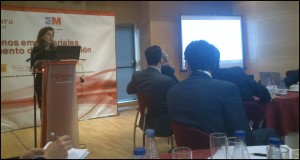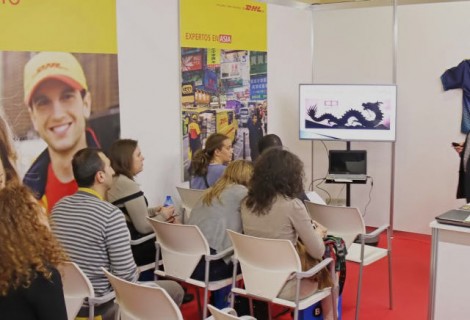Electronic Commerce in China
The last day 7 of March, the Chamber of Commerce of Madrid organized a "business breakfast" about e-commerce in China. This event was attended China Management, to learn firsthand the changes that are taking place in relation to this matter in the Asian giant.
As we all know, societies are changing in this beginning of the "technological age" and companies will have no choice but to evolve to adapt to these changes. One of these changes is undoubtedly the e-commerce. Buying and selling online has grown steadily since its inception and does so at breakneck speed. In this sense, data provided by one of the speakers, Fernando Aparicio (Amvos Consulting), leave no doubts and show us, once again, China continues to grow, in addition to GDP, whose growth is expected to be this year of a 7,5%, in their transactions via online. It is expected that the end of 2013, China is the largest e-commerce market in the world, superando a EE.UU.
Because, once again, since China Management We advise companies who dare to take that step forward towards the Chinese market, because it is a very competitive market, but also full of opportunities.
The various speakers at this business breakfast, provided valuable data and experience, which we shall discuss below:
The electronic market in China, moment, is a concentrated market where few companies.
There are several portals buying and selling online in China, but now the majority is Tmall (with approximately 60% From the market).
A key site for buying and selling electronics in China ALIBABA. This portal is making a great effort to try to solve the problems of the consumer confidence "not Chinese", you might have with Chinese suppliers on the internet shopping. For it has created several services like ALIPAY (which provides a triangular payment) and ALIEXPRESS (online sale to the final consumer, through "hubs" in which centralizes orders from different suppliers – pure B2C). This type of business, to import from the “world factory” which it is China, through direct contact with manufacturers and sellers online, and guarantees.
Luis Galán (DaD Asia Consulting), emphasized issues to be taken into account when a company decides to embark on the adventure of online sales in China:
The advice is introduce products through online distribution portals, Web support level of "branding" and others.
Online distribution costs in China:
Costs with which the company has to have are as follows:
Portals costs: deposits in preventing problems, sales commissions, annual fees, fees loyalty programs ...
Import Duties: reduced as a result of agreements between the EU and China, but they have to take into account.
logistics costs: shipments, storage, labeled, Control information systems, Investment in own web (regardless of what you also do in distribution portals).
Human Resources: marketing manager / ecommerce, technical staff (programmer, developer, integrator), customer service, logistics staff, translators, audiovisual production (we must bear in mind that China has a different culture and different people, why audiovisual production is so important, both web design and photographs of people, etc.)
Other factors to consider:
Analyze and study: Products and / or services exported to China, They are made by the importer and distributor subsequently. Back, and from China, then comes the money (sales level) and something very important for businesses, information (This affects level marketing). It should therefore make a reputation management, tools through which social networks are tracked, to know what position is a product. Brand monitoring.
Communication: Give the brand voice in China. It is much needed good publicity. Some companies opt to do “Licensing” (use a known brand in China to sell a product, although it has nothing to do with the product name brand itself – P.ej: China sold, and a not inconsiderable price, wine brand “Real Madrid”). Other companies, and depending on the product, They are decided by “Samplings” (delivery of product samples in specific locations that may be interesting to find an end consumer - P. not: Iberian ham luxury hotels).
It is also important to have a good legal and logistical advice, and what management it is vital for China, a knowledge of the Chinese market.



























